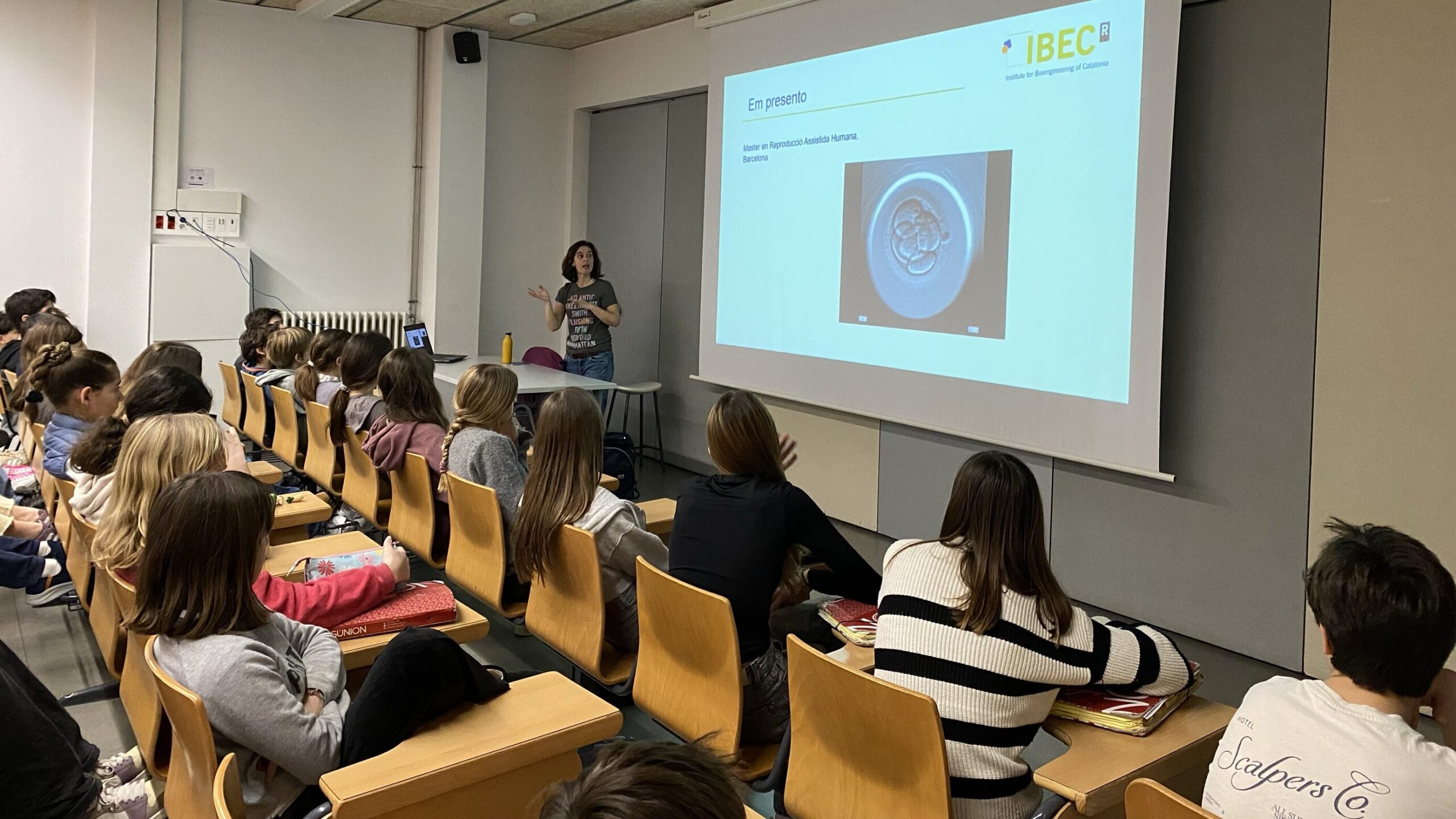Last 14th of February, Anna Ferrer from the Institute of Bioengineering of Catalonia (IBEC), went to Súnion School in Barcelona to explain her trajectory as a researcher and show that women can also be excellent scientists!

Since 2015, February 11th has been recognized worldwide as the International Day of Women and Girls in Science, following its declaration by the United Nations. This annual observance seeks to dismantle the gender stereotypes and persistent biases that have long limited the participation of women and girls in scientific fields. Through a wide array of initiatives and events, the day underscores a collective commitment to fostering inclusive, equitable opportunities and promoting the active involvement and empowerment of women and girls in science, in pursuit of greater gender equality.
In this context, Anna Ferrer, a member of the Bioengineering for Reproductive Health Group led by Samuel Ojosnegros at IBEC, actively engaged in the 10th International Day of Women and Girls in Science. Last 14th of February, she gave a talk to about 100 12-13 year-old students from “Súnion School in Barcelona, Catalonia as part of the annual #cientifiques event, a collaborative effort between the Catalan Foundation for Research and Innovation (FCRI) and the Barcelona Institute of Science and Technology (BIST). #científiques seeks to bridge the gap between science and schools in Catalonia while advocating for the recognition of female scientific talent.
Anna explained her trajectory to become a scientist and make them realize that a scientist is an ordinary person who also has a family, hobbies… and can also be a woman! She talked about her work in embryology linking it to HYLIGHT project, and gave protagonism to brilliant women that made enormous contributions to science and that were not recognized just for being women. She exemplified this huge gap by the small number of women that won the Nobel Prize to date and also mentioned the history of two excellent scientists: Hilde Mangold and Rosalind Franklin that suffered injustices for being females. Fortunately, things are changing and nowadays the way to science is less complicated to women that some years ago. However, we still have much work to arrive to a real equity.
In summary, students were very interested and motivated and took the opportunity to exchange with Anna not only about science but also about being a female scientist.
